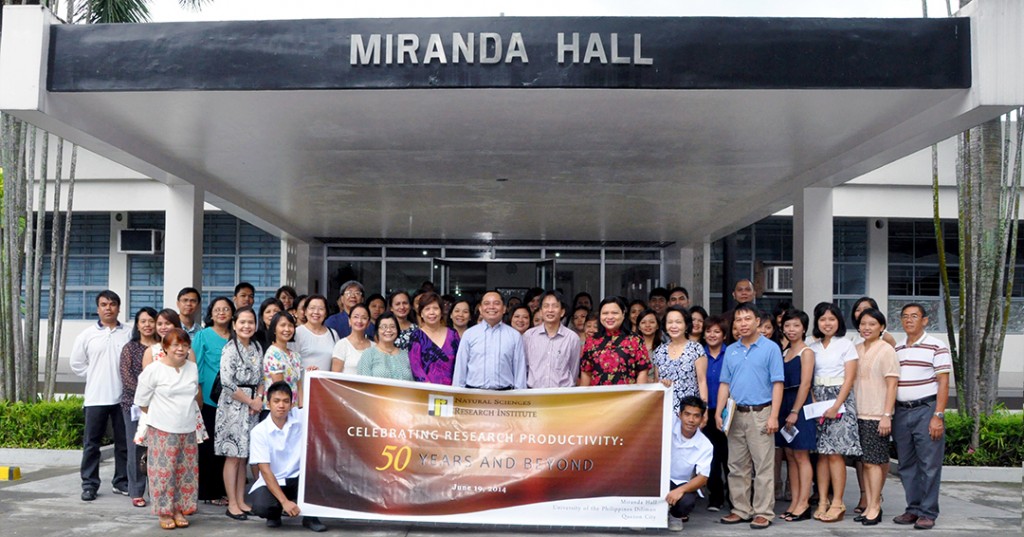By Albino C. Gamba Jr., image by Leonardo Reyes
(JUN. 27)— In simple ceremonies, the Natural Sciences Research Institute (NSRI) celebrated its golden year on Jun. 19 with the theme “Celebrating Research Productivity: 50 Years and Beyond.”
“This is an appropriate theme because NSRI boasts of its outstanding track record in research and in technical services,” said NSRI director Dr. Windell Rivera.
UPD Chancellor Michael L. Tan urged the NSRI to translate or transform their academic researches into knowledge that can be applied in communities, industry and other sectors.
“We should be able translate academic research into something people read out there in the real world. Also, NSRI’s work has to be better known by the other units because your research has so many potential applications and it will be very important in the overall plans of the UPD scientific community,” Tan said.
As part of the celebration, two retired staff and a Research and Extension Professional Staff were recognized for their dedicated service and significant contributions to NSRI. They are Victoriano G. Bravo and Ernesto A. Canlas, and Dr. Evangeline C. Santiago.
The special recognition was then followed by an audio-visual presentation and tour of the facilities of the Institute.
The highlight of the daylong celebration was the symposium featuring the current research undertakings of the in-house scientists of the Institute.
Among the researches presented were: “Probing the Phatogens in Local Produce” by Dr. Ma. Auxilia T. Siringan;“A Catalyst for Philippine Judicial Reform: 18 Years of Forensic DNA Typing Research, Training and Extension Services at the UP NSRI-DAL”by Gayvelline C. Calacal; and the “Development of a Loop-Mediated Isothermal Amplification (LAMP) Assay for the Detection of the Sexually-Transmitted Parasite, Trichomonas vaginalis” by Davin Edric V. Adao.
The first research study looked into the microbiological quality of the agricultural products that are potentially hazardous to consumers, while the second discussion was an overview of the services of the NSRI DNA Analysis Laboratory, in collaboration with other government agencies, in initiating the use of DNA evidence in forensic investigations. The last presentation discussed the method for detecting Trichomonas vaginalis, a protozoan parasite found worldwide that infects the urogenital system of humans.
NSRI, formerly the Natural Sciences Research Center (NSRC), was established on Jun. 19, 1964 by virtue of Republic Act 3887 as the research arm of the natural sciences in UPD. On March 23, 1983, then Philippine President Ferdinand Marcos issued Executive Order No. 889, re-organizing NSRC into NSRI and declaring it as a National Center of Excellence in the natural sciences.
In 2000, the NSRI building was named Miranda Hall in honor of its first director, Prof. Bienvenido T. Miranda.

